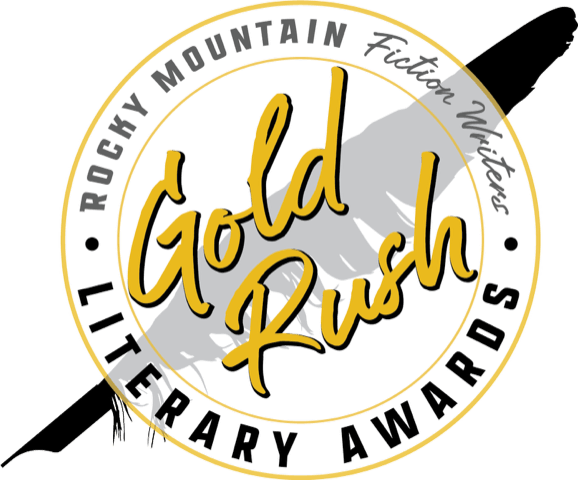
Contest entries are judged on the criteria below. The entries that successfully hit the most benchmarks become the finalists and go before a VIP agent or editor:
Formatting Benchmarks:
- 3,000-word manuscript, 250-word synopsis, contestant’s name is absent from the entry
- Double-spaced, 1-inch ragged right margins, 12-pt Times New Roman font
- Header and page numbers on every page, chapters & synopsis start 1/3 down
- Correct genre and subgenre
Genre and Opening Benchmarks:
- Correct genre and subgenre
- There is a strong and/or interesting hook
- Story starts in the right place
- Story premise and/or question is clear
- Setting details (location, era, season, etc.) are woven in without excessive description
Point of View Benchmarks:
- POV characters are likable and/or interesting and compelling and are the right ones for the story
- POV stays true to the individual characters without head-hopping or unrealistic knowledge (if omniscient, the omniscience is intentional, consistent, and effective)
- POV is deep – the characters are not reporting the action, conflict, and observations through the passive lens and are not telling it from the author’s perspective (does not overuse phrases like he sees, she hears, I smell, she watches, etc.)
- Intentional changes in POV enhance the story and drive the plot forward (benchmark is still considered fully hit if there are no changes in POV)
Characterization Benchmarks:
- Protagonist’s early struggles, goals, and misbeliefs are present and clear – we know what they want, why they want it, and what might potentially stand in their way
- Protagonist drives the action and does not merely react to outside forces
- Protagonist’s inner thoughts and analyses are present, clear, & aligned with stimuli – not merely implied through dialogue, gestures, or facial expressions
- Antagonist is introduced, has goals, and is in conflict with the protagonist
- Supporting characters have purpose and are not underdeveloped or intrusive
- Characters are distinctive in voice and behavior, feel real, and shape the plot
Emotional Content Benchmarks:
- Stakes are clear and high enough for the genre
- Intensity of protagonist’s predicament is realistically & convincingly dramatized
- The reader feels emotionally connected and invested and is intrigued by, if not rooting for, the protagonist
- Drama is not undermined by coincidence, author intrusion, backstory, or info dumps
Narrative Benchmarks:
- Narrative voice is clear, strong, and consistent
- Pacing is smooth and is not halted by backstory, info dumps, or author intrusions
- Choreography is easily visualized and is not excessive in nature
- Metaphors and similes stay true to the characters, setting/world, and era
Dialogue Benchmarks:
- Dialogue is relevant, reveals character, evokes emotion, and advances the plot
- Mundane conversation (phone hellos, goodbyes) included only to add subtext/tension
- Limited use of hesitant speech (well, um, uh, so, ellipses) as substitute for inner thought
- Characters do not info-dump or offer already-known details as a storytelling shortcut
- Characters have distinctive, age-appropriate and genre-appropriate voices and do not all sound alike
- Speech tags are nearly invisible (he said, she said) and not full of distracting adverbs
- Use of dialect and/or idiom does not cloud dialogue meaning or distract the reader
Scene Craft Benchmarks:
- Scenes have a beginning, middle, and an end
- Scenes drive the story forward and are not gratuitous or arbitrary
- Scenes are fleshed out and are not narrative summary or a list of sequential events
- Changes in setting are intentionally staged and transitions between each are clear
Grammar and Mechanics Benchmarks:
- Author understands grammar and punctuation
- Rules are broken only for conscious effect
- Minimal typos, spelling errors, and misused or mistaken words
- Verb tenses match and are consistent throughout
- Author does not overuse passive verbs and/or helping verbs and adverbs
Synopsis – Plot Benchmarks:
- Synopsis opening matches the manuscript’s opening
- Central conflict unfolds through rising stakes and is settled satisfactorily in the end
- Conflict, tension, and suspense are sufficient for sustaining reader interest
- Inciting incident, stakes, turning points, dark moment, climax and resolution are identifiable
- Entire story is told and no secrets remain
Synopsis – Character’s Journey/Arc Benchmarks:
- Protagonist’s struggles, goals, and misbeliefs are intertwined with the plot
- Motivations and goals drive protagonist’s behavior, not coincidence or random occurrences
- Supporting characters are relevant and do not add confusion to the synopsis
- Subplots enhance the story and affect the outcome
- Win or lose, protagonist has undergone a life-changing journey and has an arc
Submission deadline is May 1st, 2024.
Contest Eligibility and Guidelines | Contest FAQ | Contest Home
Call for Judges | Judging Benchmarks | Previous Contest Winners
